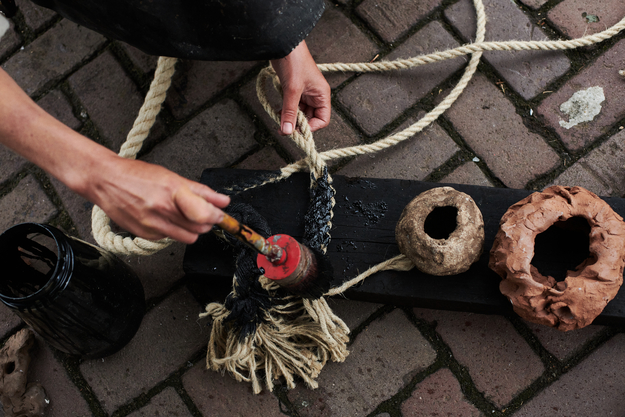This spring and summer is all about fire, tar, and substances transformed by the heat of fire. The hermits' shelter on the Tumulus is painted black with wood tar. This is an ancient way of preserving wood and protecting it from rotting processes. Meanwhile, earthen clay turns into ceramics in a kiln and is glazed on the bank in front of the barn. Ruchama is bringing the elements together in a ceramic-wood sculpture that will gradually appear on the Tumulus garden over the next few weeks, during the celebration more elements will be created and added.
Tumulus
Tumulus is an enclosed garden installation that functions as a natural ruin, compost heap, soil sculpture, seedbed, earthwork, dyeing source, and dunghill. Over the course of several seasons from June 2019 onwards, artist Ruchama Noorda transforms the patch of greenery next to our Sluisdeurenloods into a living sculpture and performance site.
Ruchama Noorda
Ruchama Noorda is an artist who uses diverse media and materials in performances and installations. She received a PhD degree from University of Leiden where she researched the early 20th century Lebensreform (Life Reform) movement. In her practice Noorda recycles elements of Lebensreform teaching, arts, crafts, dance, diet and ritual practices. These works both engage with and challenge the communitarian and counter-cultural aspirations, practices and beliefs of movements inspired by Lebensreform. Her works function as a sort of séance by highlighting the mystical and magical elements of these traditions. By making this the subject of her work, Noorda wants to excavate the histories of these movements that were often overshadowed by the ideologies of Modernist art movements.
Information
Monday, June 21, 17:00 - 20:00





